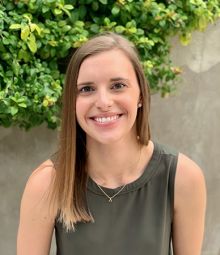 Introduction to Part II of the Special Issue
Introduction to Part II of the Special IssueGeraldine (Geri) Palmer, Jesica Siham Fernandez, Dominique Thomas
These articles represent a call for a participatory, action oriented and decolonial liberatory standpoint rather than a bystander or deficit approach.
Read more... The Premise of Persistence: Deconstructing Colonial Authority in Community Psychology Curricula and Structures, Towards Liberative Andragogy and Practice
The Premise of Persistence: Deconstructing Colonial Authority in Community Psychology Curricula and Structures, Towards Liberative Andragogy and PracticeEricka D. Mingo, Christopher Balthazar, and Bradley Olson
In the U.S., Community Psychology (C.P.) arose in the 1960s, attempting to break traditional clinical and research psychology patterns. While CP rejected many Eurocentric and oppressive ideas, remnants remain in every ecological corner of our work: research, professional organization, academic institutions, and community practice. This paper takes a historical look a the origins, maintenance, and risks of the premise of persistence.
Read more... Dialogues of Disruption: Confronting Oppression in the Academy
Dialogues of Disruption: Confronting Oppression in the AcademyCiann L. Wilson, Amandeep Kaur Singh, Ann Marie Beals, Rajni Sharma, Brianna Hunt, Ellis Furman, Natasha Afua Darko, Tiyondah Fante-Coleman, Vivila Liu, and Natalie Kivell
Within academia in recent years, there has been a concerted effort to re-center the perspectives and rights to free speech of the status quo at the expense of the safety and wellbeing of queer, trans, racialized, and Indigenous communities. Through our hard-fought lessons learned from often painful lived experiences as queer, trans, and Black, Indigenous, People of Colour (BIPOC) scholars and activists, this paper aims to: 1) Archive and document the testimonies and experiences of multiply-marginalized students and emergent faculty in the field of community psychology in a mid-sized Canadian university; 2) Utilize critical and intersectional analyses in unpacking the layers of violence and harm expressed and experienced through case examples; 3) Use our experiences to share strategies on the successful navigation of white supremacy in the academic spaces in which we work and learn; and 4) Call academic disciplines, including community psychology, to action by identifying their ethical responsibility to cultivate non-violent spaces for BIPOC people.
Read more... Talking about Race in Puerto Rico: Four Descendants of the Transatlantic African Diaspora Share their Experiences
Talking about Race in Puerto Rico: Four Descendants of the Transatlantic African Diaspora Share their ExperiencesNataka Moore, Julissa Pagán-Peña, Paola Rodríguez-Dávila, Rebecca Rodríguez-Rivera, and Tiana Santisteven
In an effort to better understand racial dynamics and the Puerto Rican’s perception of race, four descendants of the African Diaspora engaged in a self-reflective process using a roundtable approach to analyze their experiences in Puerto Rico. The roundtable approach is based in an ethnographic method of the qualitative approach. The objective of this paper is to start a dialogue to open up spaces and opportunities to engage in this difficult conversation. It is the authors’ hope that this paper can spark conversations and strategies to address the historical and contemporary impact of how Blackness is socially constructed in Puerto Rican Society.
Read more... Getting to the heart of it: A Reflection on the Importance of Community Psychologists Developing an Anti-racist Practice
Getting to the heart of it: A Reflection on the Importance of Community Psychologists Developing an Anti-racist PracticeLeigh Rauk
Reflexivity is an introspective practice of becoming aware of personal biases, values, and assumptions related to our positionalities as researchers (Case, 2017; Fernández, 2018a). This paper responds to the call by Langhout (2015) for community psychologists to engage in more personal writing about the ways in which affective politics impact feelings and emotions surrounding our work as scholar-activists as well as critiques the core community psychology values of social justice and diversity.
Read more... When Students Listen: A Co-Constructed Autoethnography of Graduate Student Activists Eradicating Racism in Higher Education
When Students Listen: A Co-Constructed Autoethnography of Graduate Student Activists Eradicating Racism in Higher EducationKevin Ferreira van Leer, Kimberly M. Ashby, Sriya Bhattacharyya, Gloria G. McGillen, Cedrick-Michael Simmons
Although anti-racist and decolonial scholars in community psychology have shared valuable ways professionals can promote racial justice and contend with potential barriers (e.g., Lykes et al., 2019; Makkawi, 2017), little consideration has been given to graduate students’ resistance to institutional oppression. Through co-constructed autoethnography, it provides narratives addressing three central themes: (1) isolation, racism, and community-building; (2) direct actions and institutional pushback; and (3) internal conflicts and endurance. It considers how graduate students, as individuals who are structurally disempowered in higher education, persist in the face of oppressive institutional structures to challenge them, risks they experience in doing so, and techniques and resources that aid them.
Read more... Subverting Whiteness: A Systems Theoretical Approach to Anti-Racist Praxis
Subverting Whiteness: A Systems Theoretical Approach to Anti-Racist PraxisCharles R. Collins and Erin Watson
To subvert Whiteness, activists, educators, and scholars created White privilege (and other related) interventions seeking to illuminate the power inherent in Whiteness. However, these psychologically focused (implicit bias) interventions frequently fail to alter the systemic conditions that perpetuate and reinforce White privilege and BIPOC oppression. To address this issue, we provide a framework that takes a systems approach to subverting White dominance.
Read more... Imagination Praxis: White Anti-Racist Culture Building
Imagination Praxis: White Anti-Racist Culture Building Gloria Dykstra and Cristien Storm
This paper will chronicle the racial justice praxis the authors, and seven additional white colleagues, have undertaken in response to our growing awareness of the need for critical-liberatory spaces in which white anti-racist cultures can be cultivated. The practices undertaken by the group of white therapists and psychologists are a gesture toward anti-racist imaginings; striving to disrupt social and institutionalized white body supremacy.
Read more...I often feel like the best thing I can do is be quiet and let the work speak for itself.